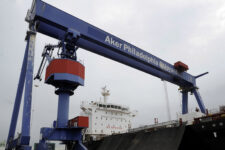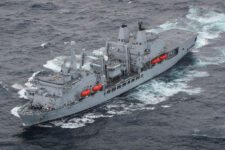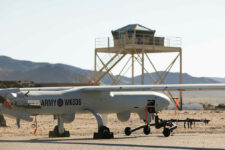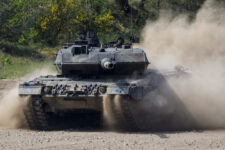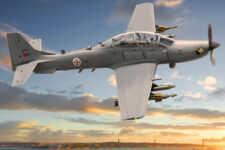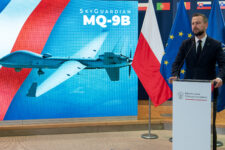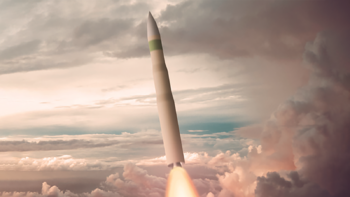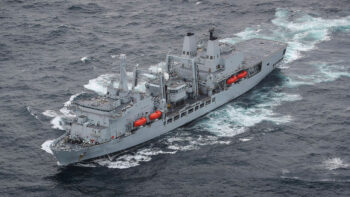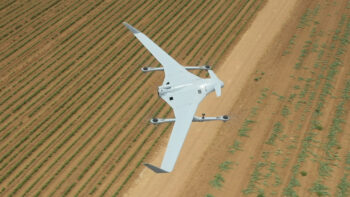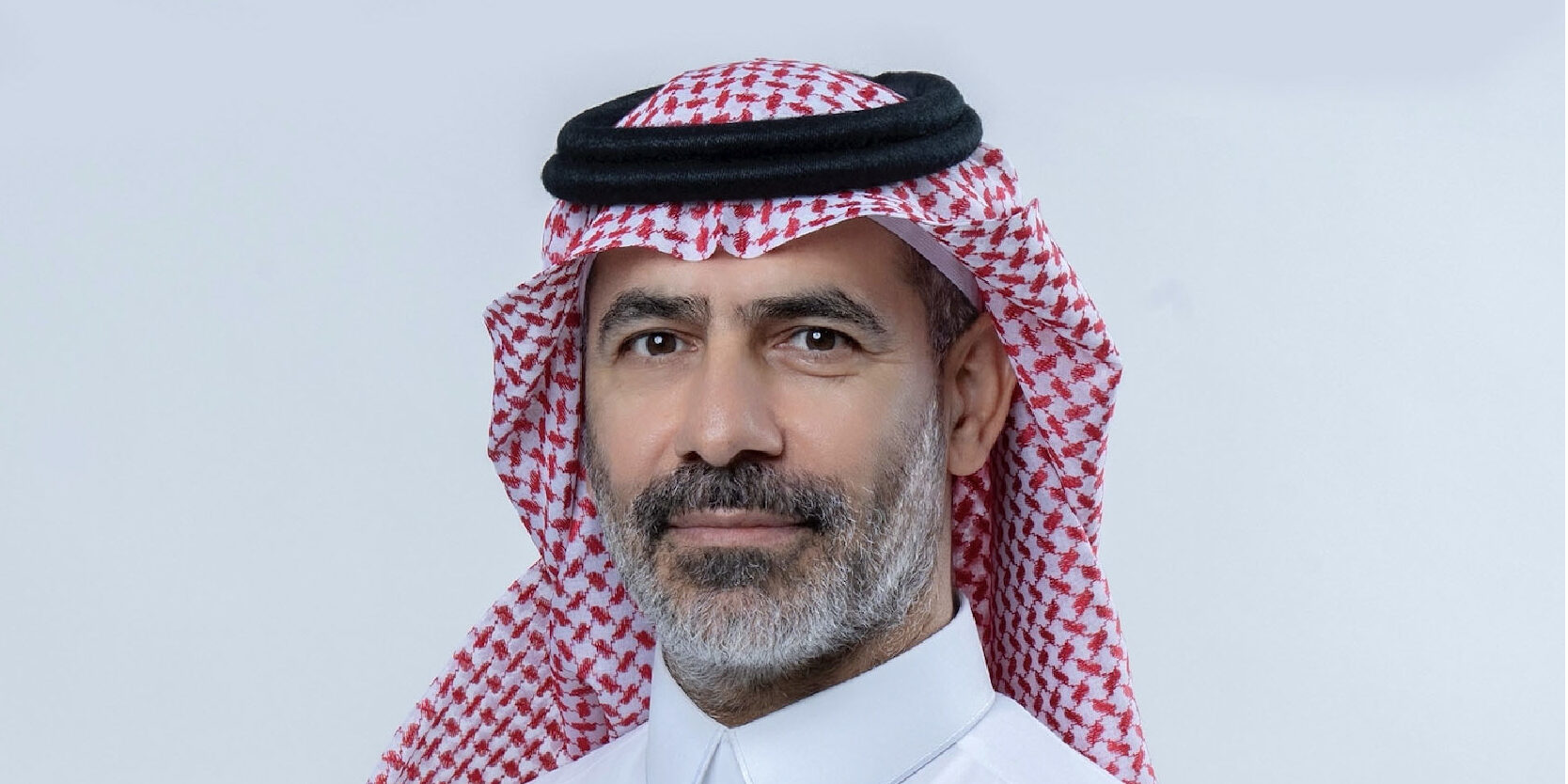
Saudi Arabia Military Industries CEO Walid Abukhaled. (SAMI)
PARIS AIRSHOW — Saudi Arabia Military Industries has set itself the goal of having 50 percent of Saudi military spending be on domestic production by 2030. It’s an ambitious target, which has led to the company pursuing joint ventures and acquisitions, as well as standing up indigenous production lines.
During this year’s Paris Air Show, Saudi Arabia Military Industries CEO Walid Abukhaled sat down with Breaking Defense to discuss about the progress SAMI has made in its endeavors. Among the major topics are regional cooperation, prospect acquisitions, business plan and updates on ongoing defense programs.
This interview was edited for length and clarity.
Breaking Defense: With less than seven years separating us from 2030, how close you are to 50% defense production localization? And what are your efforts in this regard?
Walid Abukhaled: Our clear target for 2030 is that Sami will play a major role in localizing more than 50% of the defense spending in the Kingdom of Saudi Arabia. Our focus in the last two years was mainly about winning contracts and executing them, while our focus this year and next year is mainly building very strong and solid capabilities in the Kingdom to be able to deliver all the contracts we won.
We have a backlog of more than $10 billion in contracts so far. Now, our localization percentage have reached 14% and close to 15%, in actual achievements on all the contracts we’ve signed.
The next three years the percentage of localized components will increase exponentially, since we have the capability [in place], and we are extremely confident that by 2030 we will achieve the target of 50% localization of the defense spending.
We have seen other Gulf defense conglomerates buying stakes in Western firms or resorting to acquisitions. Does SAMI have any acquisition plans?
Saudi Arabia Military Industries doesn’t only target 50% localization but also aims at being one of the top 25 defense company globally. In order to do that our strategy is based on establishing joint ventures with that best global companies in defense, including Lockheed Martin, Boeing, Airbus — and the list goes on. And at the same time, we are acquiring companies within the kingdom to consolidate the industry. That said, in order to be one of the top 25 company globally and achieve our target, we have to look at inorganic growth that comes from acquisition regionally and globally.
We are not currently in acquisition negotiations, but we always monitor and review opportunities globally. Many investment firms come to us with opportunities based on certain criteria we give them, so we are in continuous review of those opportunities and then when the right opportunity comes and it ticks all the boxes on the criteria, we will make a move and make the acquisition.
RELATED: Saudi naval modernization pushes ahead, with eye always on Iran
SAMI had an ambitious plan for local production. What phase of this plan are you now? Can you elaborate more about production lines?
We always have a five-year plan and we know our main plan is until 2030. Our main focus now is to build real capabilities on the ground facilities that will support our armed and security forces. And those facilities will not only support the Kingdom, but we aim for it to be a regional hub with our OEMs. It is expected to be a strategic engineering hub for all land systems activity, where you can upgrade, maintain, design and manufacture land system vehicles in this facility that is completely owned and operated by SAMI. However, this facility is intentionally designed to be OEM-agnostic, which means if a vehicle from a western firm is brought in for a huge upgrade or to be manufactured in our facility we can cater to that.
We are building a state-of-the-art land systems facility now at Al Kharj. We’ve already issued the contract for this design firm and we believe that by 2025 or early 2026 it will be up and running and operational.
SAMI is also building an aerospace hub at Malham, which will be Center of Excellence for all aerospace capability including fixed wing aircraft, rotorcrafts or UAVs. We are in the design phase of this center and it is expected to be operational by 2024.
A third facility we have started the preconstruction on is the ammunition industrial complex, also in KSA.
Regarding your cooperation with NIMR, an Edge subsidiary from UAE, did Edge launch production lines in KSA in cooperation with SAMI? And what other cooperation option are you working on with EDGE?
Due to the limited number of vehicles in the contract, (149 vehicles) we are bringing the vehicles and fully integrating them with all our systems from communication to mission systems in the Kingdom. If the agreement is expanded and the number of vehicles contracted increases, we will be fully manufacturing the vehicles in the Kingdom of Saudi Arabia.
Can you give us updates on the following projects: SAMI Composites LLC agreement with Lockheed Martin , agreement with Singapore’s ST Engineering and the agreements with Boeing?
As we speak now, the facility being qualified by Lockheed Martin is having the final qualification testing for the equipment.
We’re finalizing all the qualifications, and it will be operational by the end of this year. We should start manufacturing some composites in that facility by then. There is a plan to relocate this facility now and we’re working on the design of the new facility, but we’re still focusing on the qualification so the qualification moves with the facility.
So, with ST Engineering, we have started the defense systems, and now we are exploring autonomous capability cooperation.
We signed a joint venture with Boeing to provide rotorcraft technical support. The Saudi rotorcraft company is operational now, and very soon we will announce contracts.
Did the war in Ukraine affect your business in any way?
The Saudi market is one of the most attractive markets globally, all OEMs are keen to penetrate and grow their business in the Kingdom of Saudi Arabia. So from Sami’s perspective, our plan was not affected by the Ukraine war. What was obvious, though, is that the focus of some of the OEMs have shifted to supporting the war in Ukraine. So that did not have a direct impact on us, but it really had direct impact on the OEMs whose whole focus is shifted toward supporting Ukraine. But our businesses, our order intake, sales have not been affected whatsoever.


